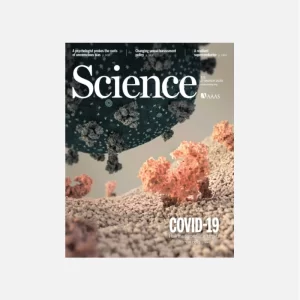Georgia State Receives $10M Grant to Advance Research in … – Georgia State University
October 9, 2023 Director of Communications and Public RelationsCollege of Arts & Sciences ATLANTA — Jonathan Shihao Ji, a

Director of Communications and Public Relations
College of Arts & Sciences
ATLANTA — Jonathan Shihao Ji, a computer science professor at Georgia State University, has received a $10 million grant from the Department of Defense (DoD) to address critical problems in artificial intelligence (AI) and robotics with a focus on human-robot interaction, 3D virtual environment reconstruction, edge computing and trustworthy AI.
In recent years, AI has become more and more prevalent in our world, powering search engines, voice assistants and self-driving cars. But Ji thinks it can do more.
“It has been claimed recently that AI is the new electricity,” Ji said. “It can empower and will transform almost every industry in the next several years.”
The research team at Georgia State includes co-principal investigators Professor Anu Bourgeois and Assistant Professor Yi Ding in the Department of Computer Science in the College of Arts & Sciences and Professor Balasubramaniam Ramesh, chair of the Department of Computer Information Systems in the J. Mack Robinson College of Business. The grant will allow them to establish the Center of Excellence in Advanced Computing and Software (CoE-ACS) and foster collaborations with researchers from Duke’s Athena NSF AI Institute and partners from the U.S. Army Research Laboratory to work with students and professors at GSU.
“AI research is a rapidly-developing field, but the advancements we are seeing are typically years in the making,” said Sara Rosen, dean of the College of Arts & Sciences. “The award of the CoE-ACS represents the culmination of years of boundary-pushing research, which has spanned Dr. Ji’s time at Georgia State and in industry. I am excited to see this research taken to the next level, and am thrilled that Georgia State is a player in advancing the frontiers of AI and robotics.”
One major area of research for the center will involve Boston Dynamics’ Spot — a four-legged, dog-like robot — which was acquired by Ji with another DoD grant last year.
Using Spot, Ji hopes he and his fellow researchers will be able to advance AI technology by developing a natural language interface for the robot, which could increase the number of useful tasks that it can perform.
“We’ll be able to tell Spot, ‘Please go to the kitchen and see if the fridge door is closed properly. If not, please close it,’ and Spot should be able to understand it and go do that on its own,” he said.
Ji also hopes to teach Spot how to navigate a variety of environments on its own.
“We can build a 3D virtual environment and train Spot in that environment then transfer the knowledge learnt from the simulator into the real world,” Ji said.
That could be helpful in situations such as search and rescue, facility maintenance and emergency response that may be dangerous for humans.
Research will also focus on developing machine learning algorithms to increase the ease of human-computer interaction. To do this, researchers at the center will try to teach AI to understand humans in new ways, for example by human voices or through virtual reality goggles. In the next research phase, the center will explore visual demonstrations.
“If you want to teach the robot how to pick up a water bottle, you can show the robot how to do it naturally by demonstration,” Ji said.
The center will also focus on increasing the security of AI devices and systems. In many cases, data that could be housed and processed on a device is instead uploaded to remote servers collectively referred to as the cloud, creating a risk that private information could be leaked, Ji said.
Edge computing could be a solution. This technology involves storing and processing data locally, rather than in the cloud. In some cases, such as with drones, this can be difficult because the devices can’t carry much weight, limiting the amount of processing power they can house. One of the projects will focus on creating smaller and more power-efficient models to process the data on devices to decrease the chances of data leaks from them. Duke’s Athena, a research institute dedicated to edge computing, will help the GSU center to address the privacy and security challenges in the context of AI and robotics.
The grant will enable Ji and his fellow researchers at Georgia State to fund 12 Ph.D. students, 100 undergraduate students and multiple post-doctoral researchers at the university over the initial five years. The team also plans to partner with local high schools, hoping to spark interest in AI and robotics in younger generations.
“This very significant grant presents an incredible opportunity to establish a national presence for the university in cutting-edge research areas such as Human-AI Collaboration and the development of Responsible AI systems that are also well aligned with the strategic priorities of the university,” Ramesh said. “We are also excited by the opportunity provided by the grant to prepare a diverse group of students to pursue research and careers in artificial intelligence.”
Professor Yiran Chen, director of Athena NSF AI Institute and the Duke PI of the project, noted the longstanding collaboration between his team and colleagues at Georgia State.
“We eagerly anticipate a more productive partnership within this new center of excellence,” Chen said.
— Story by Katherine Duplessis. Photo by Qing Su.
Jonathan Shihao Ji
Associate Professor
Computer Science, Neuroscience
Ji’s principal research interests lie in the area of machine learning and deep learning with an emphasis on high-performance computing. He is interested in developing efficient algorithms that can learn from a variety of data sources such as image, audio and text on a large scale and automate decision-making processes in dynamic environments.
Filed Under: Science & Technology
Georgia State’s Panthers in the District Program Points Students to Future Careers
In Person or Online? Researchers Find People’s Stated Support for Democracy Depends on How They’re Asked
Anthropology Alum Breaks Down Medical Barriers to Help Others
Arts & Sciences Student Aims To Make Exhibits More Accessible Through Internship at National Center for Civil and Human Rights
Georgia State Announces Ignite Award Winners
College of Arts & Sciences News Hub
Send this to a friend












